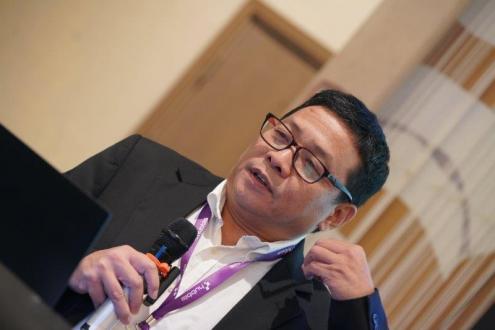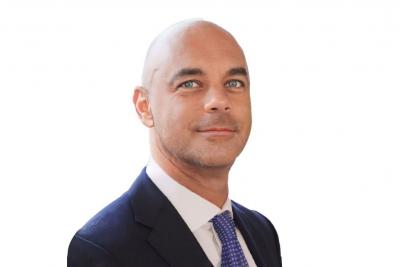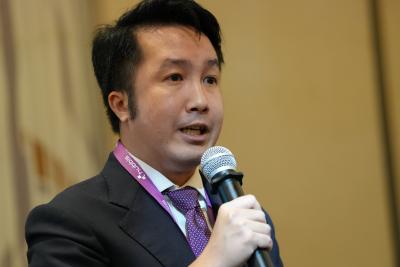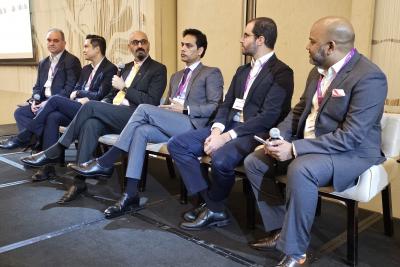Key Tax Planning Considerations in Vietnam’s Wealth Management Markets

Dec 20, 2022
Nam Nguyen Managing Partner at consulting firm Kreston NNC, made a short presentation at the Hubbis Vietnam Wealth Management Forum in Ho Chi Minh on November 9. He highlighted key issues to consider around tax planning in the delivery of wealth management.
Nam Nguyen is a leading business and tax advisor in Vietnam who has some 30 years of work experience in Big-4 firms in Vietnam (including EY, KPMG, and PwC), and with over 10 years of experience at Partner level at these firms. Since 2017, he has run his own professional service firm, Nam Nguyen Consulting (NNC), which is now rebranded to Kreston NNC, and is a member of Kreston Global which has over 750 offices in over 110 countries.
Nam is highly regarded as “trusted advisor” by leading local business founders and companies, and multinational companies in Vietnam, as evidenced by his long-lasting work relationships with them. He has received awards from Vietnam’s Minister of Finance and Prime Minister for contributions to the tax profession in Vietnam, and recognitions by International Tax Review as one of Vietnam’s tax controversy leaders. Kreston NNC has also received awards by APAC Insider Magazine as the Best Independence Tax Firm.
Nam obtained education in Australian Universities including a Master of Professional Accounting. He holds fellow membership of CPA Australia and is the Chairperson of CPA Australia Advisory Committee in South Vietnam. In addition, he is a member of International Tax Specialist Group (ITGS), Vietnam Tax Consultants Association (VTCA) and CFO Vietnam.
What Nam Nguyen said:
“I have been working as a tax advisor in Vietnam for some three decades, having worked for the Big-4 firms here I started my own firm five years ago, and soon started to branch out to serve high net worth clients. Today, I want to briefly share my experience and understanding of this market.
There are three key elements, their family, their businesses, and their wealth & legacy planning, all of which have evolved apace in the past decade or two.
First, these wealthy clients started sending their kids overseas to study and secondly, they take up some or all of their family and join them. And then once the family settles in the overseas country, then they start thinking about restructuring their business in Vietnam, by listing the company or by M&A, perhaps also investing overseas. And then once all that is settled, they start estate planning. Those are the key trends we see emerging.
For the business side, traditionally, these HNWIs operate their business like a family business, and then they gradually step up for example to having a holding company, and then perhaps finding a foreign partner. That is the traditional offshore holding structures. And then, they will move on, starting to invest also using an offshore company listed perhaps in Singapore or somewhere else. And then later on, the structure will change when estate planning and wealth planning come to the fore, and they need different options and structures. In this way, the manner the structure their businesses and the way they conduct business aligns with the priorities they set in life.
And why is tax so important? Well, as an example, I worked with a client who suddenly died and left an estate of USD750 million for his successor, his son. The son comes back from overseas, he is a young, fresh graduate, and has no idea how to manage everything. If only my client had put the right plans in place earlier, he would have saved the family a lot of trouble and a lot of tax. Inheritance tax is 10%, but the tax on the sale of stocks or securities is 0.1%, and that adds up to a huge difference on USD750 million.
There are common tax planning techniques that high net worth individuals should be aware of. One is a trust solution, which is to build a structure that basically helps pass wealth to the next generation in the most tax efficient manner. I am not going into the technicalities here, and professional advice must be obtained, but this is the headline solution.
These families will as I said often have family, homes, even official residence, or citizenship overseas as well, so they need to look into the international tax implications. And when we talk about international tax, you have to look at tax treaties and the bilateral investment that Vietnam has.
We have done research for high-net-worth individuals to identify the top countries that have a tax treaty with Vietnam and looking at what we can call the best tax treaties for the creation of holding companies, for business operations and so forth. We found the optimal solutions combine Vietnam with Singapore and the Netherlands.
If HNWIs want to ensure robust planning, they need an accountant, a lawyer and a banker or wealth manager, all of whom can add different value. I strongly advise these clients to take on this type of expertise. Thanks for listening.

Managing Partner at Kreston






